Cameroon-Commonwealth : Celebrating 25 Years Of Achievements
- Par Emmanuel
- 13 Nov 2020 12:17
- 0 Likes
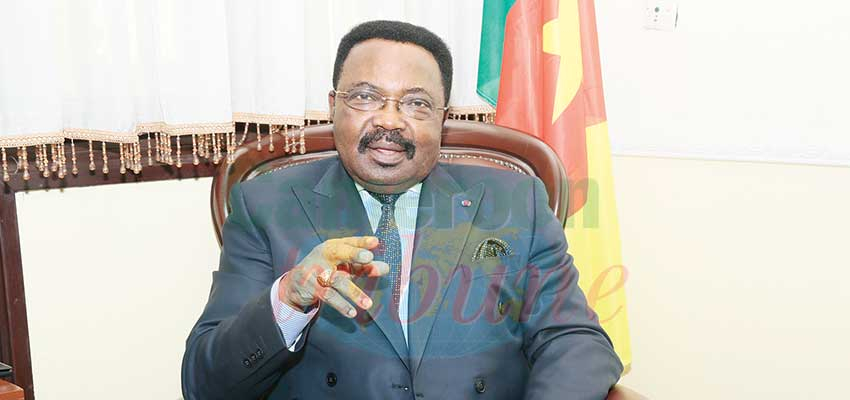
Cameroon joined the Commonwealth on November 13, 1995.
Today, November 13, 2020 makes exactly 25 years since Cameroon joined the Commonwealth. Indeed, it was on November 13, 1995 during the 14th Commonwealth Heads of Government Meeting in Auckland, New Zealand, being the 52nd member country of the organisation.
The Minister Delegate at the Ministry of External Relations in charge of Relations with the Commonwealth, Felix Mbayu in an interview recounts Cameroon’s participation in the Commonwealth activities, the major achievements and some of the hurdles the country has been encountering as it partners with the organisation. He also puts into perspective the Commonwealth plan of action and states what the country stands to gain at the collective and individual levels. The Minister stated the different ways in which the Commonwealth has been contributing to the resolution of the security and socio-political crisis affecting the English-speaking North West and South West Regions of Cameron and also how membership in the organisation has impacted the democratic and governance systems in Cameroon.
What are some of the fallouts of the 25 years of Cameroon-Commonwealth cooperation?
Cameroon joined the Commonwealth on 13 November 1995 during the 14th Commonwealth Heads of Governments Meeting (CHOGM) in Auckland, New Zealand, as the 52nd Member Country. The event offered a unique opportunity for the Head of State to impress among his peers his vision of a Cameroon that uses its cultural diversity as a glue to the unity and prosperity of the people. In this regard, the cooperation between Cameroon and the Commonwealth has been founded on the commonalities between both partners and the sharing of best practices on the core values and principles of the Organisation. Accordingly, more than two decades down the road, the fruits of this cooperation have been registered across the board in political and legal aspects, economic, technical and cultural as well as in the social and non-governmental domain.
Some key fallouts worth highlighting include; Reforms for the modernization of its political and legal system, notably by strengthening the electoral system by supporting the creation of an independent body responsible for organizing and managing elections, Elections Cameroon (ELECAM), restructuring the National Commission on Human Rights and Freedoms (NCHRF) and providing financial assistance to fund the training of its members and supporting prison reform, including the transfer of the Penitentiary from the Ministry of Territorial Administration to the Ministry of Justice and the creation of data bases of detainees; Supporting Cameroonian enterprises and foreign direct investment through strategic partnership with the Commonwealth Enterprise and Investment Council and boosting intra-Commonwealth trade; Providing scholarships to young Cameroonians and funding projects developed by Civil Society Organisations through the Commonwealth Foundation.
What are some of the huddles encountered by Cameroon in partnering with the Commonwealth?
Just like with every other organisation, there have been some challenges faced by Cameroon in engaging with the Commonwealth, notably considering local erroneous perceptions of the Commonwealth being an Anglophone organisation or even stakeholders failing to understand the ethos of the organisation as a tool to global leverage support for contemporary challenges.
Accordingly, it has been an uphill task sensitizing our citizens on the comparative advantage of belonging to the Commonwealth as an organisation that helps build human resources through best practice replication and experience sharing rather than provide financial resources.
I must also highlight the fact that unlike other member countries, Commonwealth activities in Cameroon are coordinated by a Focal Point which is the Commonwealth Department of the Ministry of External Relations. This organisation allows for a coherent approach in the management of the multi-faceted activities carried out in Cameroon and ensures that the possible outcomes are maximised. This organisation is not often understood by local stakeholders and that has a negative impact on our cooperation. Finally, accessing funding for Civil Society Organisations is often impeded by a poor mastery of the project development strategy and cycle proposed by the Commonwealth Foundation. In this regard, efforts are underway to update the project development skills of local civil society actors in line with the requirements of the Commonwealth.
What are the prospects of this long lasting cooperation?
Much has been achieved so far and the future is very promising in many aspects. The Strategic Plan 2017/18 – 2020/21 builds on the results achieved and lessons learned during the last plan period. In this regard, considering that we live in a complex and dynamic world, Cameroon will join the Commonwealth to forge ahead with the profound political, economic, social, environmental and technological changes that will be imposed by future challenges. Thus, the values of democracy, development and diversity that bind Commonwealth members together and provide a common ground to help each other will be supported such that the Organisation can continue to use its soft power to influence the external environment, and emerge as a global force for good. Cameroon has been, is and will be working with the Commonwealth to build institutional and human capacity, to enhance policy and promote greater connectivity between the Government, national institutions and all Cameroonians at all levels as our country takes important strides towards the achievement of its national development objectives.
More young Cameroonians should be able to make the most of Commonwealth scholarships, capacity building programmes and empowerment opportunities, while all relevant national stakeholders should be able to work within the Commonwealth to promote investment and trade, social development, peace and security. Cameroon and the Commonwealth are also working steadily within the framework of global efforts to Prevent and Counter Violent Extremism. The 2021 Commonwealth Heads of Government Meeting (CHOGM) will hold in Kigali, Rwanda and provide a platform for Member Countries to deliver initiatives that are achievable, comprehensive, meaningful and which will provide continuity as well as change. It will also be an opportunity for Members to build a strong connection with its citizens and to explore ways in which talents and innovations can be used, exploited and supported through transformational leadership that encourage imagination, creativity and gives equal opportunity to all citizens.
How has the Commonwealth helped in shaping the Cameroonian society?
Our membership in the Commonwealth is a projection to the world of our bilingual and bicultural nature that underpins our identity and our very existence as a nation. It is also a demonstration of Cameroons commitment to the core values and principles of the Commonwealth as enshrined in the Commonwealth Charter- notably Democracy, Human Rights, International Peace and Security, Good Governance, Gender Equality and highlighting the importance of the Youth and the role of the Civil Society. By participating in the family of some Commonwealth Accredited Organisations, Cameroon has received Technical Assistance received through: The Commonwealth Parliamentary Association chaired by Hon Emilia Monjowa LIFAKA and sharing best practices in parliamentary governance and legislative drafting; The Commonwealth Telecommunications Organisation supporting Cameroon’s Telecommunications Regulatory Board; The Commonwealth Enterprise and Investment Council driving Cameroonian enterprise into the Commonwealth Market and helping foreign direct investment from the Commonwealth business world; The Commonwealth Local Government Forum bringing impetus to the fast tracking of the decentralisation process in Cameroon; The Commonwealth Electoral Network sharing best practices in the organisation and management of elections, stakeholder engagement and refreshed guidelines for election observation; The Commonwealth Magistrates and Judges Association supporting the reform of the penitentiary administration and the harmonisation of the Criminal Procedure Code which draws significantly on the...
Cet article complet est réservé aux abonnés
Déjà abonné ? Identifiez-vous >
Accédez en illimité à Cameroon Tribune Digital à partir de 26250 FCFA
Je M'abonne1 minute suffit pour vous abonner à Cameroon Tribune Digital !
- Votre numéro spécial cameroon-tribune en version numérique
- Des encarts
- Des appels d'offres exclusives
- D'avant-première (accès 24h avant la publication)
- Des éditions consultables sur tous supports (smartphone, tablettes, PC)






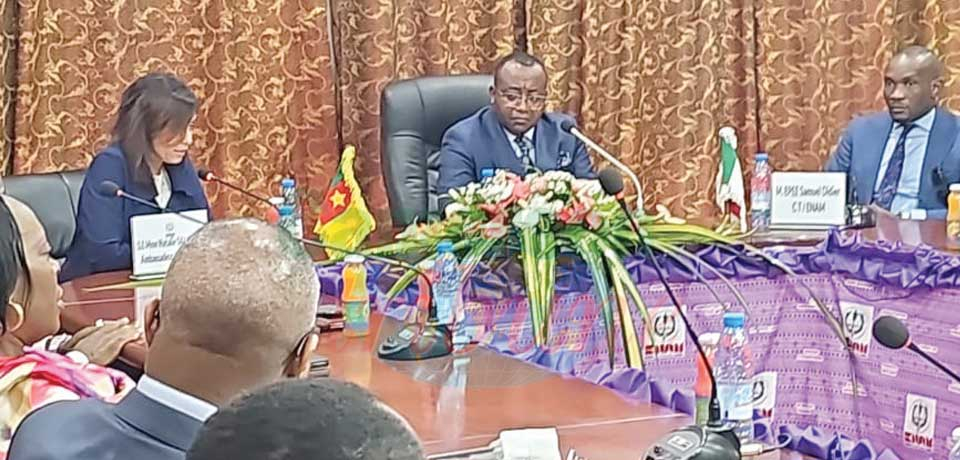
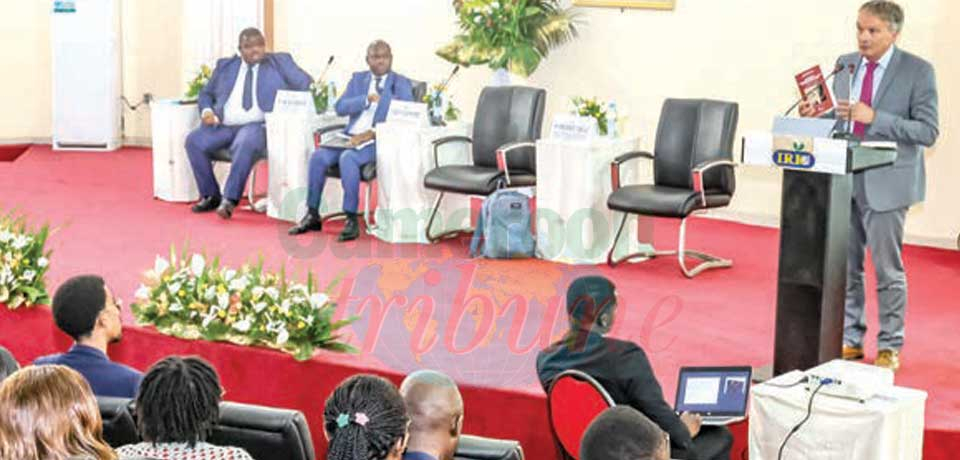
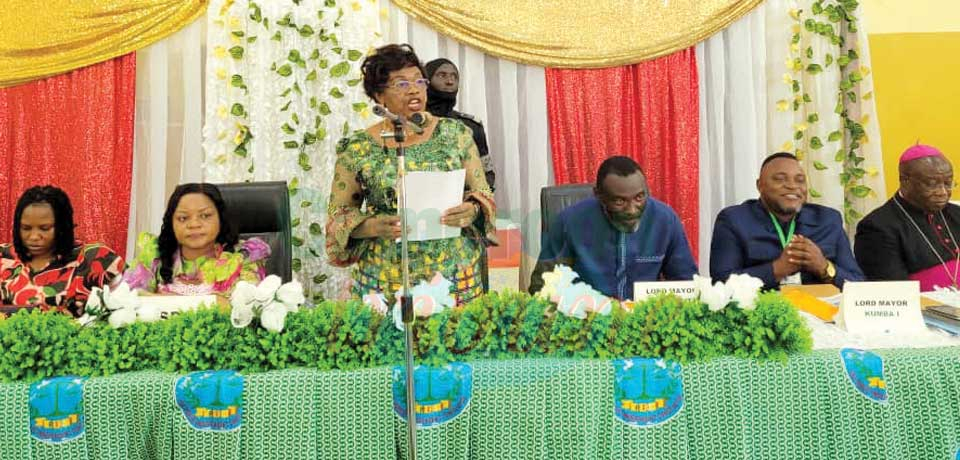
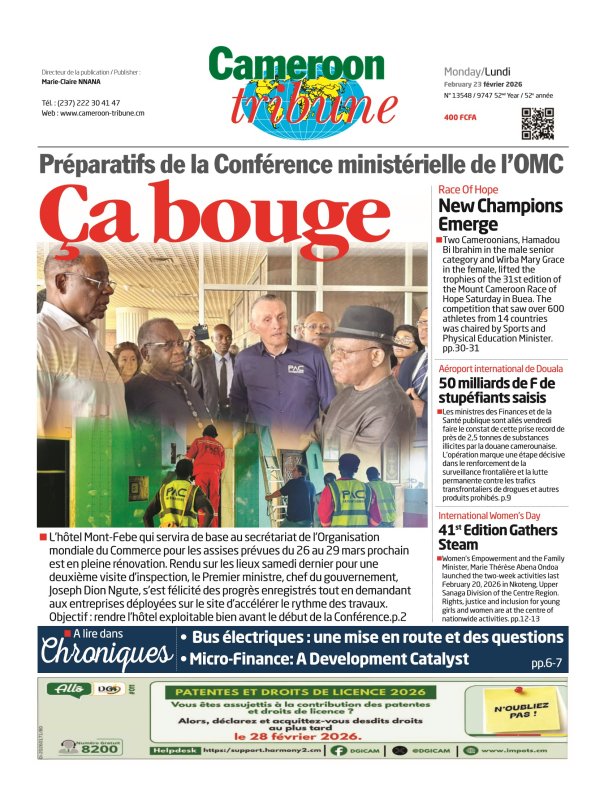




Commentaires